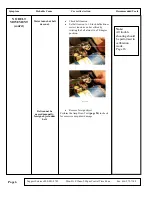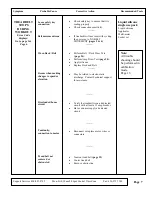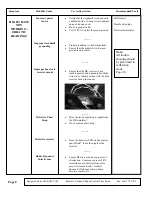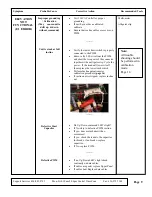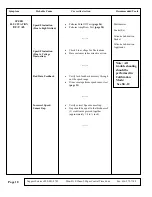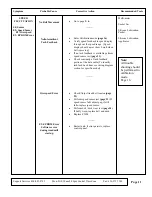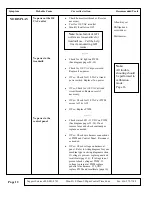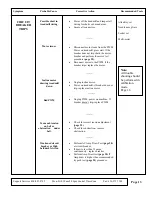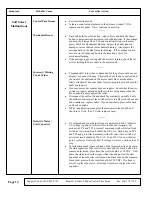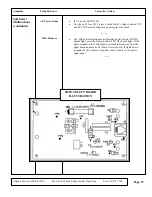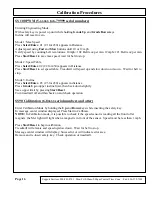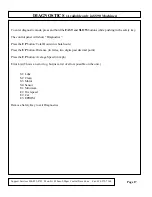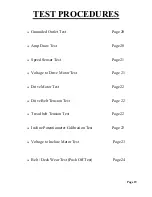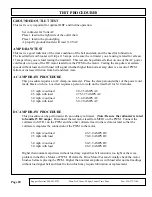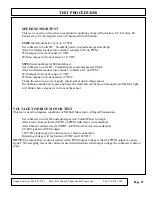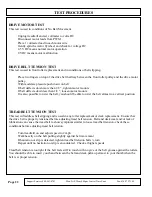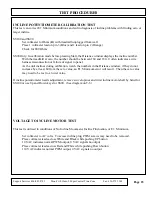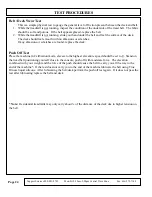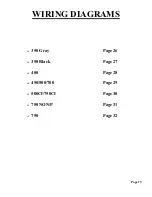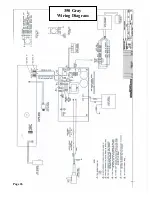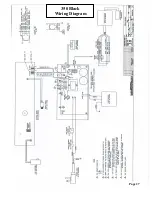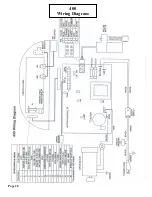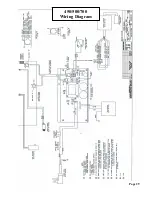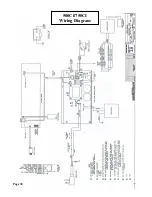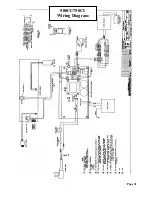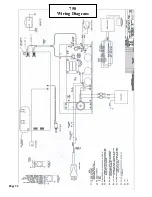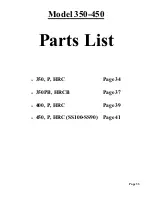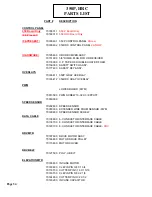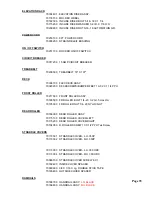
TEST PROCEDURES
Support Services 800-883-8783
Mon-Fri 8:30am-5:00pm Central Time Zone
Fax: 636-272-7148
GROUNDED OUTLET TEST
This test is very important for optimal HRC and incline operation.
Set voltmeter for Volts AC
Place 1 lead in the right side of the outlet (hot)
Place 1 lead in the ground plug
A properly grounded outlet will read 110 VAC
AMP DRAW TEST
This test is a good indicator of the wear condition of the belt and deck, and the need for lubrication.
The treadmill circuit breaker will trip at 15 amps, so be sure the voltmeter you are using is rated for at least
15 amps when you are load testing the treadmill. This test can be performed either on one of the AC power
cord leads or on one of the DC motor leads from the PWM to the motor. Testing the amp draw at certain
speeds without load and with load will signal whether higher than normal amp draw is a result of PWM
failure or increased friction from belt and deck wear.
AC AMP DRAW PROCEDURE
This procedure requires an AC clamp-on ammeter. Place the clamp around either of the power cord
leads, black or white. Load test requires a person to walk on the tread belt for 5-10 minutes.
2.5 mph w/out load
2.0-2.5 AMPS AC
2.5 mph with load
2.75-3.75 AMPS AC
5.0 mph w/out load
3.5-4.0 AMPS AC
5.0 mph with load
5.0-7.0 AMPS AC
DC AMP DRAW PROCEDURE
This procedure can be performed with an ordinary voltmeter.
(Note: Be sure the voltmeter is rated
to handle 15 DC amps.)
Disconnect the red motor lead from MTR1 on the PWM. Connect the
voltmeter to MTR 1 on the PWM and the other voltmeter lead to the red motor lead so that the
voltmeter completes the connection of the PWM to the motor.
2.5
mph
w/out
load
4.5-5.0
AMPS
DC
2.5
mph
with
load
7.0-8.0
AMPS
DC
5.0
mph
w/out
load
5.0-5.5
AMPS
DC
5.0
mph
with
load
8.5-9.0
AMPS
DC
Higher than normal amp draws without load may signal that belt tension is too tight or there is a
problem in the Drive Motor or PWM. Perform the Drive Motor Test and visually check the motor
brushes before replacing the PWM. Higher than normal amp draws with load after normal readings
without load signal belt and deck friction which may require lubrication or replacement.
Page 20
Summary of Contents for 350 Black
Page 20: ...Page 18...
Page 28: ...Page 26 350 Gray Wiring Diagram...
Page 29: ...Page 27 350 Black Wiring Diagram...
Page 30: ...Page 28 400 Wiring Diagram...
Page 31: ...Page 29 450 500 700 Wiring Diagram...
Page 32: ...Page 30 500CI 750CI Wiring Diagram...
Page 33: ...Page 31 500CI 750CI Wiring Diagram...
Page 34: ...Page 32 750 Wiring Diagram...

